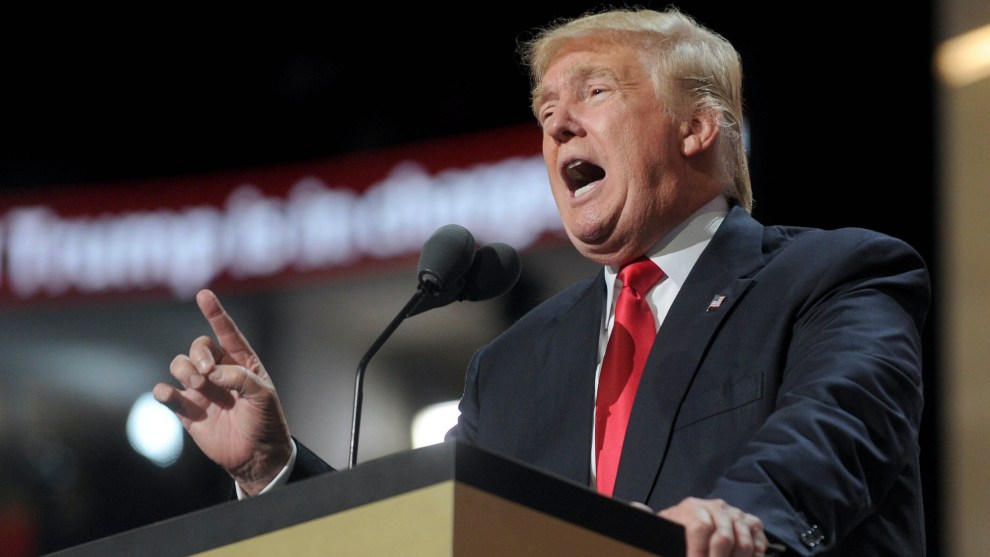
Mother Jones illustration; Getty, Michael Brochstein/Getty
When Donald Trump’s campaign budget was largely tapped this fall, his staff resorted to deceptive online fundraising practices that tricked donors into signing up to make extra or recurring credit card payments.
According to a New York Times report, the strategies, which involved automatically checking boxes above language consenting to the donations buried below lines and lines of near gibberish, sparked a huge number of complaints, which helped push the campaign to refund an eye popping $64.3 million dollars. According to insiders interviewed by the Times in credit card fraud departments, complaints about unwanted and unexpected charges from Trump donors accounted for as much as 3% of all traffic for periods during the campaign—a stunning number when compared to the massive amount of non-political credit card transactions the companies process. “It felt,” one victim tells the Times, “like it was a scam.”

The Trump campaign paid out many of those refunds after the November election, as new piles of cash were coming in, purportedly earmarked to fund legal battles related to his false claim that his reelection was stolen. As the Times reports, “the money that Mr. Trump eventually had to refund amounted to an interest-free loan from unwitting supporters at the most important juncture of the 2020 race.”
Since leaving office, Trump has kept his political money machine operational. Just last month he sent cease and desist letters to the Republican National Committee and other party arms demanding they stop using his name and likeness in fundraising, and told donors to instead give to a PAC he controls.

















